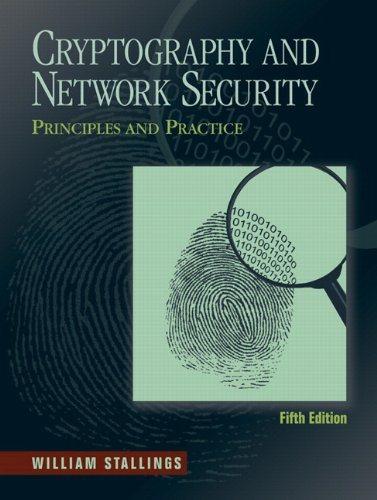Let (pi) be a permutation of the integers (0,1,2, ldots,left(2^{n}-1ight)), such that (pi(m)) gives the permuted value
Question:
Let \(\pi\) be a permutation of the integers \(0,1,2, \ldots,\left(2^{n}-1ight)\), such that \(\pi(m)\) gives the permuted value of \(m, 0 \leq m<2^{n}\). Put another way, \(\pi\) maps the set of \(n\)-bit integers into itself and no two integers map into the same integer. DES is such a permutation for 64-bit integers. We say that \(\pi\) has a fixed point at \(m\) if \(\pi(m)=m\). That is, if \(\pi\) is an encryption mapping, then a fixed point corresponds to a message that encrypts to itself. We are interested in the probability that \(\pi\) has no fixed points. Show the somewhat unexpected result that over \(60 \%\) of mappings will have at least one fixed point.
Fantastic news! We've Found the answer you've been seeking!
Step by Step Answer:
Related Book For 

Question Posted:





